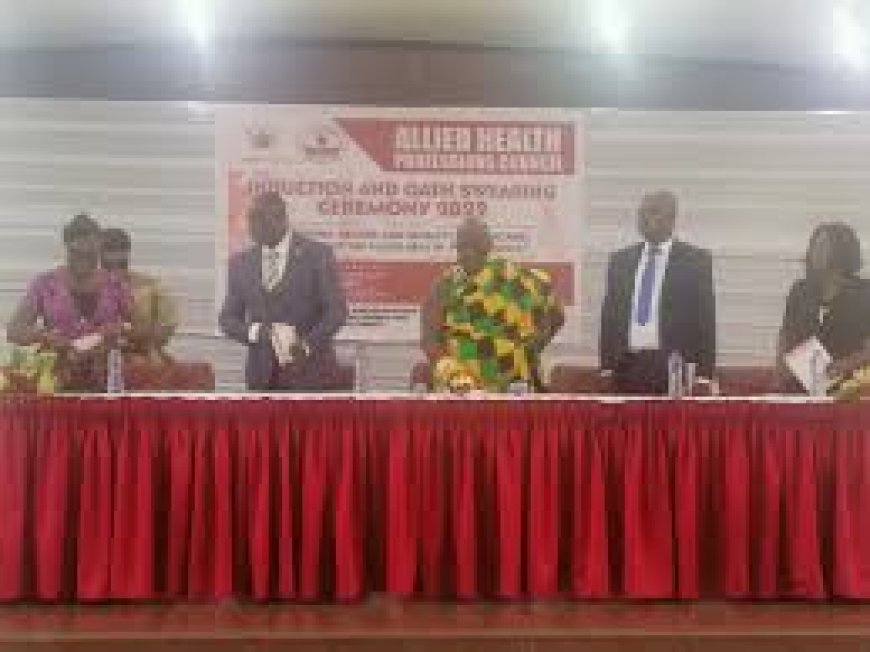The Allied Health Professions Council laments the high unemployment rate amid the departure of workers.

The Allied Health Professions Council laments the high professional unemployment rate amid the departure of workers. Currently unemployed are more than 20,000 graduates who passed their license exams and maintained excellent standing with the Allied Health Professions Council.
The Council is condemning this state of affairs, which is being caused by an exodus of middle-aged professionals overseas in search of better opportunities.
Also check out our previous post here.
A parliamentary act established the Allied Health Professions Council of Ghana as a legislative organization to oversee the education and practice of allied health professions in the nation.
2,536 recently qualified allied health graduates from a variety of professions have been sworn in and initiated into the field this year.
The Council, however, worries that the new grads will increase the number of unemployed allied health workers in the nation's stagnating pool.
Dr. Daniel Atta-Nyarko, acting registrar of the Allied Health Professions Council, is pushing for equity and justice in recruiting to offset members' frequent relocations.

“The Council is concerned with the growing number of trainees without commensurable employment opportunities both in the public and private sectors. The Council is therefore calling on the government to partner with the Council in streamlining the numbers of trainees to ensure quality training for quality service delivery,” he said. In an effort to counteract members' frequent relocations, Dr. Daniel Atta-Nyarko, interim registrar of the Allied Health Professions Council, is advocating for fairness and equity in recruitment.

At the Kumasi induction and oath-taking ceremony for recently qualified allied health graduates, Dr. Daniel Atta-Nyarko made these statements.
'This event is both an admission into your profession and a confirmation of your commitment to moral behavior and excellence. You pledge to uphold the highest standards of care, defend patients' rights, and support the broader goals of improving the quality of healthcare by taking the oath'. According to him, taking this oath is a commitment to yourself and the people you will serve to approach your profession with integrity, hard work, and a strong desire to make a positive impact.
Under the subject "Transforming Healthcare: Allied Health Professionals as Catalysts for Quality Improvement," the event brought attention to the critical role that allied health professionals will continue to play in determining the direction of healthcare both domestically and internationally. Through the induction process, new professionals are moved from "studenthood" to "practitioner," from the training room to the workplace.
Dr. Thomas Kwabena Gyampomah, a consultant medical laboratory scientist, is pushing the experts to collaborate while utilizing technology.

“Transformational change in healthcare requires the collective focus of AHPs to address all negative habits via policy changes and advocacy, and with renewed dedication and commitment to duty backed with continuing professional development, quality improvement in healthcare can become just a routine'.
“The healthcare landscape is constantly changing. Leveraging technological advances and embracing innovation, including artificial intelligence (AI), offer great opportunities for AHPs to play more critical role in leading the healthcare transformation to deliver exceptional patient care and quality outcomes,” he said.





